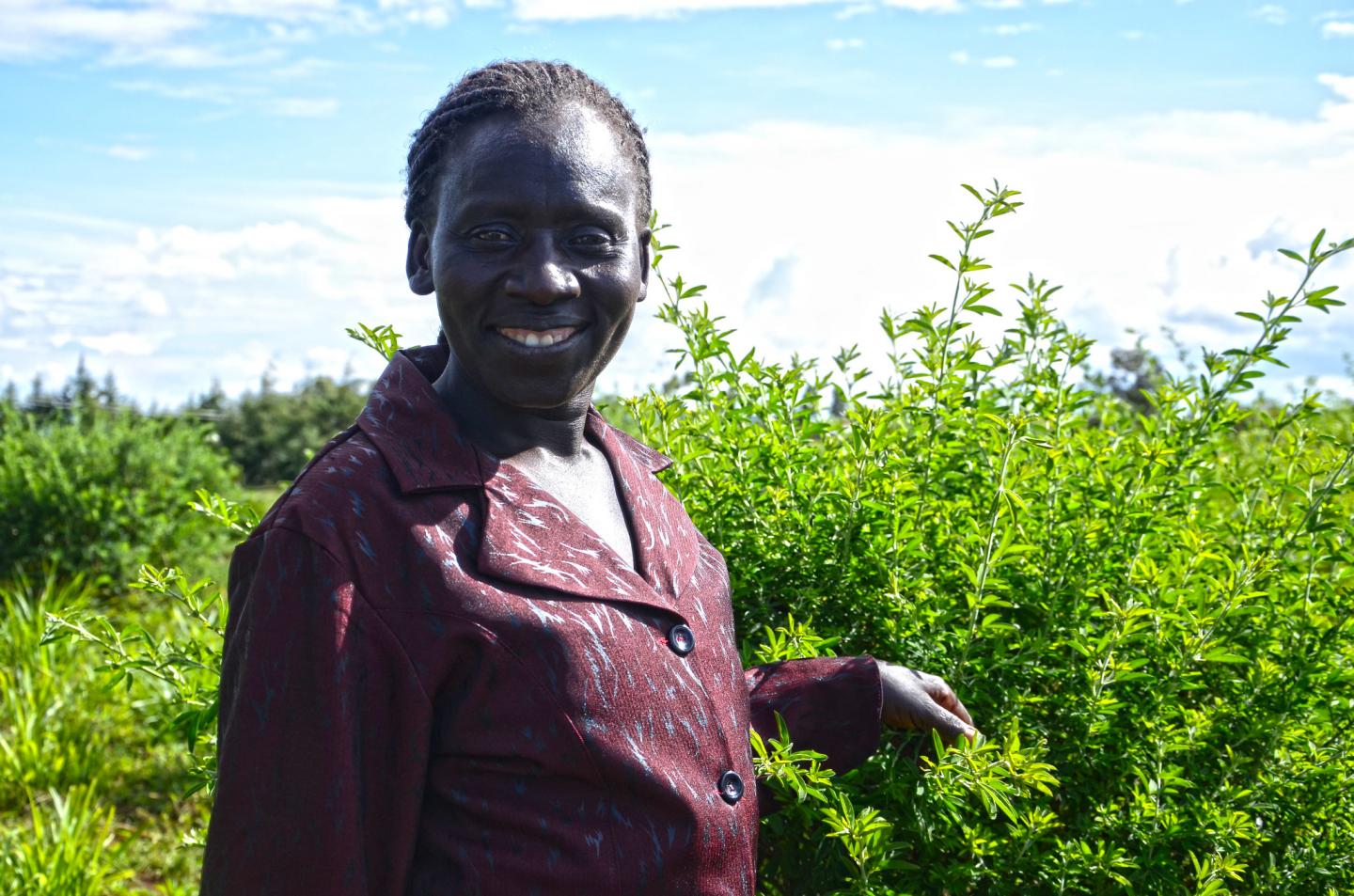Agroforestry is overlooked in global climate change reporting systems, resulting in missed opportunities to account for a major carbon sink

Credit: S Odeyo, World Agroforestry. https://flic.kr/p/iq9Cii
BURLINGTON, VERMONT (26 June 2019) – Farmers incorporate trees into fields and pastures to earn cash from fruit or wood, increase fodder and shade for livestock, promote soil health or protect against wind or water erosion. In all cases, farmers contribute to climate change mitigation by increasing soil and biomass carbon sequestration.
But it appears they are a step ahead of the United Nations Framework Convention on Climate Change, the global organization that aims to stabilize our climate.
In an article published today in the journal Agriculture, Ecosystems and Environment, scientists expose the lack of measurement of and reporting on agroforestry in international climate agreements. Many countries intend to sequester carbon through agroforestry to help meet climate change mitigation targets, but the ability to document sequestration through agroforestry is often severely limited.
Scientists call for improved accounting and visibility, including through better data and satellite imagery, for agroforestry to support increases in food production and massive scaling of soil and biomass carbon sequestration.
Explicit ambitions, minimal reporting
Just as farmers value trees on their farms, 40% of developing countries name agroforestry as a strategy for adapting to and mitigating climate change. In Africa, 71% of countries identify agroforestry as a critical climate strategy.
However, research being released shows that just sixteen developing countries provided quantitative estimates that include the number or areal extent of trees outside forests. The gap between what is reported and what could be reported is immense: scientists have estimated that some type of agroforestry is practiced on 43% of all agricultural land – over 1 billion hectares – providing subsistence to more than 900 million people.
Scientists recommend four steps to improve national and global accounting of agroforestry, with recognition that better measurement, reporting and verification of farm-scale, national, and global benefits of agroforestry are necessary to tap transformative support for large-scale agroforestry. In many cases, capacity building and use of existing data could improve accounting of agroforestry.
Transparency of climate actions, including in agroforestry, is essential for long-term climate stability.
###
Article title and link
Making trees count: measurement and reporting of agroforestry in UNFCCC national communications of non-Annex I countries
https:/
Authors
1. Todd Rosenstock, World Agroforestry, Democratic Republic of Congo
2. Andreas Wilkes, Values for development Ltd, Bury St. Edmunds, United Kingdom
3. Courtney Jallo, World Agroforestry, Nairobi
4. Nictor Namo, World Agroforestry, Nairobi
5. Medha Bulusu, World Agroforestry, Nairobi
6. Marta Suber, World Agroforestry, Lima
7. Damaris Mboi, , World Agroforestry, Nairobi
8. Rachmat Mulia, World Agroforestry, Hanoi
9. Elisabeth Simelton, , World Agroforestry, Hanoi
10. Meryl Richards, University of Vermont, CGIAR Research Program on Climate Change, Agriculture and Food Security (CCAFS), now with Ceres
11. Noel Gurwick, United States Agency for International Development (USAID), Washington
12. Eva Wollenberg, University of Vermont, CGIAR Research Program on Climate Change, Agriculture and Food Security (CCAFS)
To request a pre-press copy of the article or to arrange interviews with authors
Please contact Julianna White, Program Manager, CCAFS and UVM, [email protected], +1.802.777.7017
Media Contact
Julianna White
[email protected]
Related Journal Article
http://dx.




